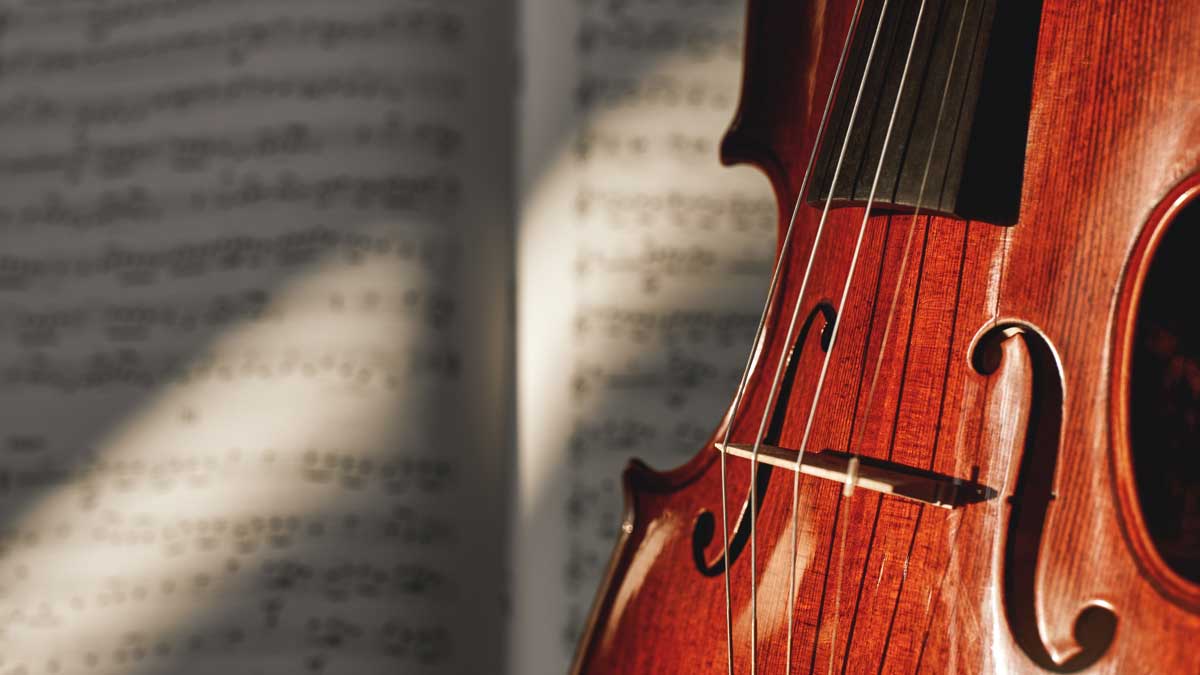Classical music, with its rich history and enchanting melodies, has fascinated and inspired listeners for centuries. If you’re new to the world of classical music, fear not! In this beginner’s guide, we will explore what classical music is all about, its origins, and the key elements that make it so captivating.
What is Classical Music?
Classical music refers to a genre of music that originated in the 11th century and continued to evolve over the centuries. It encompasses a wide range of compositions created by masterful composers who have left an indelible mark on the art form. From symphonies and sonatas to concertos and operas, classical music offers a vast repertoire that has stood the test of time.
The Origins of Classical Music
The origins of classical music can be traced back to the Medieval, Renaissance, and Baroque periods, which played a pivotal role in laying the foundations of Western music. During these eras, music was primarily created for the church and the nobility, serving both religious and entertainment purposes.
Medieval (Up till 1400)
In the Medieval period, a form of monophonic music known as Gregorian chants flourished. These chants, named after Pope Gregory I, were sung in Latin and featured a single melodic line without any instrumental accompaniment. They were composed to enhance worship services and had a spiritual and meditative quality.
Renaissance (1400 – 1600)
As the Renaissance era dawned, a new wave of musical creativity emerged. Composers began experimenting with polyphony, which involved multiple melodic lines intertwining harmoniously. This era witnessed the birth of intricate vocal compositions such as madrigals and motets, which were performed by small vocal ensembles.
Baroque (1600 – 1750)
The Baroque period witnessed a significant expansion in musical forms and styles. Composers during this era, such as Johann Sebastian Bach, George Frideric Handel, and Antonio Vivaldi, pushed the boundaries of music composition. They introduced new forms like the concerto, opera, oratorio, and fugue, each with its distinctive structure and purpose.
The contributions of these brilliant composers shaped the course of classical music and left an enduring legacy. Johann Sebastian Bach’s intricate counterpoint and profound compositions, Wolfgang Amadeus Mozart’s melodic genius and operatic masterpieces, and Ludwig van Beethoven’s revolutionary approach to symphonies and emotional depth have had a profound impact on classical music as we know it today.
Classical (1750 – 1820)
The Classical period marked a shift towards clarity, balance, and structure in music. Composers like Wolfgang Amadeus Mozart, Franz Joseph Haydn, and Ludwig van Beethoven perfected the symphony, sonata, and string quartet forms. Their works are characterised by well-defined melodies, elegant phrasing, and symmetrical structures. The Classical era also saw the emergence of the piano as a prominent instrument, leading to the creation of beautiful piano sonatas and concertos.
Romantic (1820 – 1910)
In the Romantic period, music took on a more emotional and expressive character. Composers such as Ludwig van Beethoven (transitioning from the Classical era), Franz Schubert, Johannes Brahms, and Pyotr Ilyich Tchaikovsky delved deep into individualism and imagination. They composed lyrical symphonies, passionate operas, and evocative piano music. The Romantic period introduced the concept of the “virtuoso,” with soloists like Franz Liszt and Niccolò Paganini dazzling audiences with their technical prowess.
20th Century (1900 – 2000)
The 20th Century brought revolutionary changes to classical music. Composers like Igor Stravinsky, Claude Debussy, and Arnold Schoenberg shattered traditional norms, experimenting with dissonance, atonality, and unique timbres. The century witnessed the rise of electronic music, avant-garde compositions, and minimalist styles. Notable composers like Sergei Prokofiev, Dmitri Shostakovich, and Aaron Copland explored diverse themes, from war and social change to nationalism and experimentation. Contemporary classical music continues to evolve, embracing a wide range of influences and technologies.
Key Elements of Classical Music
Classical music is characterised by several distinct features that contribute to its timeless appeal. These include:
- Melodic Beauty: Classical music is renowned for its captivating melodies that evoke a wide range of emotions.
- Harmonic Sophistication: Composers explore intricate harmonies, creating tension, release, and emotional depth within the music.
- Form and Structure: Classical compositions often exhibit a sense of balance, symmetry, and well-defined structures, providing clarity and order.
- Dynamic Range and Contrast: Classical music employs a broad dynamic range, from soft and delicate passages to powerful and dramatic climaxes.
- Development and Variation: Composers develop and vary musical themes throughout a composition, weaving intricate musical narratives.
How to Start Exploring Classical Music
To embark on your classical music journey, here are a few tips:
Listen to Iconic Compositions
Start by exploring famous classical compositions such as Beethoven’s Symphony No. 5, Mozart’s Eine kleine Nachtmusik, or Bach’s Brandenburg Concerto No. 3.
Attend Live Performance
Experience the magic of classical music by attending live performances at concert halls or local events. Witnessing the musicians’ virtuosity and feeling the music in a live setting can be truly captivating.
Embrace Various Styles and Periods
Classical music encompasses different styles and periods, from the Baroque era to the Romantic era and beyond. Explore the diversity and discover your personal preferences.
Conclusion
As you venture into the world of classical music, remember that it is an art form that transcends time and continues to inspire generations. With its enchanting melodies, intricate harmonies, and emotional depth, classical music offers a rich tapestry of sounds and stories waiting to be explored. So, take this beginner’s guide as your starting point, open your ears and heart, and immerse yourself in the captivating world of classical music.



